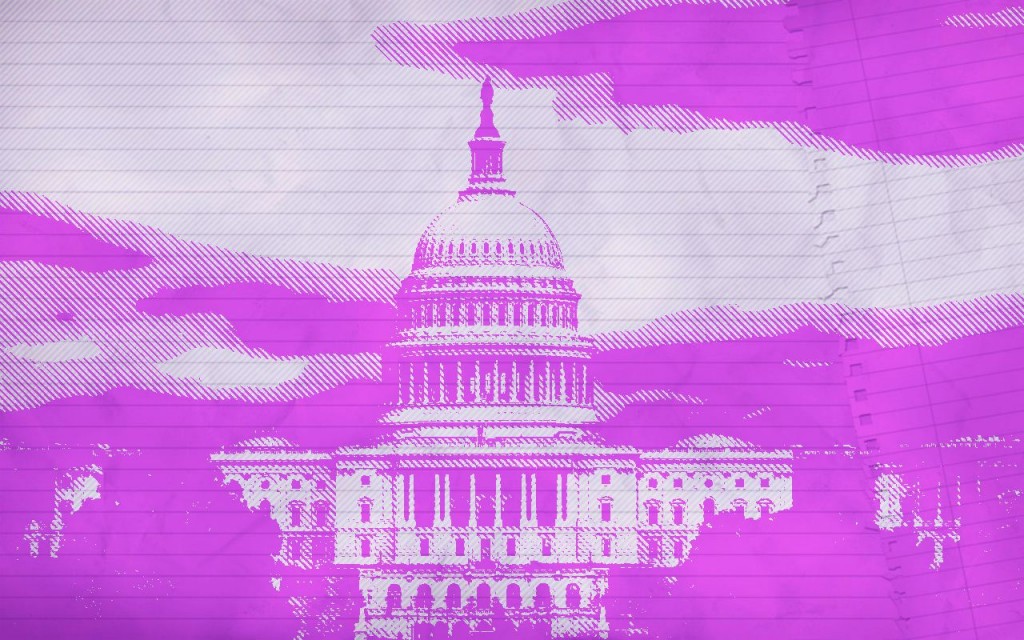The Fiscal Cliff’s Dire for LGBT Americans
We’ve been hearing predictions about the so-called fiscal cliff that threatens to turn much of the economy upside-down if the U.S. government doesn’t start agreeing on economics. For example, the Equal Employment Opportunity Commission, which enforces federal employment discrimination laws, would see an automatic cut to its budget in 2013, and these cuts would continue through 2021 if no budget resolution is reached. This could have serious implications for LGBT workers, who already face extraordinarily high rates of discrimination on the job.
The Center for American Progress, the National Gay and Lesbian Task Force, and a coalition of 23 other national LGBT organizations say that the sitiation could be problematic for the LGBT community in many other ways, as well. They released a report – “Caught in the Budget Battle: How the ‘Fiscal Showdown’ Impacts Gay and Transgender Americans” – detailing the sobering effects that sequestration could have on LGBT Americans when it comes to everything from employment and health to housing, higher education and overall safety.
“If Congress fails to strike a deal before the end of the year, all Americans will suffer, including those that are LGBT,” says Jeff Krehely, vice president of Center for American Progress’ LGBT Research and Communications Project. “Sequestration in particular would inflict significant harm by requiring wholesale cuts to programs that are critical to the health, wellness, and livelihood of LGBT people and their families. We cannot afford to let that happen.”
To put it bluntly, many federal programs, which both directly and indirectly function to support and serve the LGBT population, could be cut. Here’s what that means:
- Threats to the employment security of LGBT workers because federal agencies would have fewer resources to investigate claims of employment discrimination.
- Lower-quality health care for LGBT families because of reduced programmatic funding used to address their health care needs.
- Absence of critical resources from government agencies currently working to combat bullying and school violence against LGBT youth.
- Limited ability of federal government to address the high rates of homelessness among LGBT youth.
- Limited governmental capacity to prevent discrimination in housing against LGBT renters, tenants, and potential homeowners.
- Hampered governmental efforts to prevent violent crime against LGBT people through enforcement of hate crimes legislation.
“Lives are literally on the line if Congress lets our country tumble off this cliff. LGBT people and our families – like so many families – are already struggling in this recovering economy, and draconian budget cuts will only make things worse,” says Rea Carey, executive director of the National Gay and Lesbian Task Force. “This critical report spotlights just how severe the consequences will be for LGBT people – from tackling LGBT youth homelessness and bullying in the schools, to fighting discrimination, to enforcing hate crimes laws, to ensuring proper health care for all. Our elected leaders must act responsibly and not put lives in harm’s way.”
Luckily, many federal programs are in place to support LGBT Americans, some which are especially important for LGBT youth (anti-bullying initiatives) and others for meeting the specific needs of LGBT elders (resource centers and Medicare). For LGBT seniors, however, sequestration would cut Medicare payments to doctors, hospitals and other health care providers by next year. And the situation could reduce funding that impact LGBT youth from agencies within the Department of Education and Department of Justice that investigate bullying claims based on their sexual orientation or gender identity in our schools.
The Housing and Urban Development Department has made significant progress in ending housing discrimination against the LGBT community. The department agencies, however, would experience a sharp reduction in program funding. With fewer resources it would become more difficult to enforce the relatively new federal regulations prohibiting discrimination against LGBT renters, tenants and potential homeowners. Sequestration would also greatly undermine the progress made over the past four years toward ending housing discrimination.
Click here to read the full report.



